Get Instant Callback
Didn’t Find What You Were Looking for! Get a call back from Expert Dentist
Advanced gum treatments at Clove Dental stop bleeding, swelling, bad breath, and infection helping you regain oral health, comfort, and confidence.

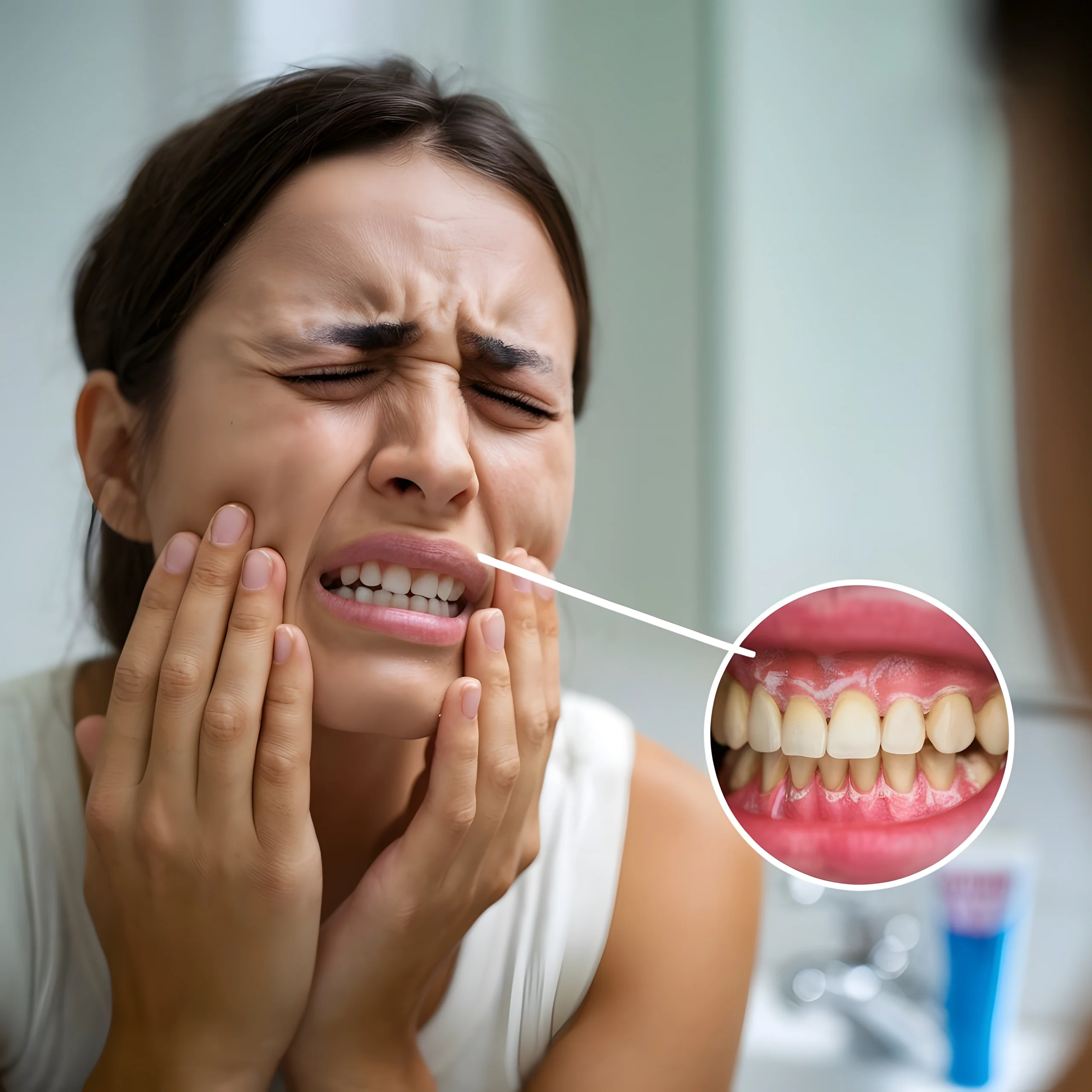
Are you concerned about gum health?
Gum disease can remain silent for months, causing swelling, bleeding, and bone loss without obvious pain. Once mobility starts, damage becomes harder to reverse. Early intervention through advanced gum therapy removes deep infection and protects your natural teeth.
Advanced gum disease (periodontitis) causes persistent swelling, bleeding, receding gums, bad breath, and tooth loosening due to deep bacterial infection. Treatment includes deep cleaning, root planing, medication, surgical care, and structured follow-ups. Early therapy prevents bone loss, saves teeth, and improves whole-body health.
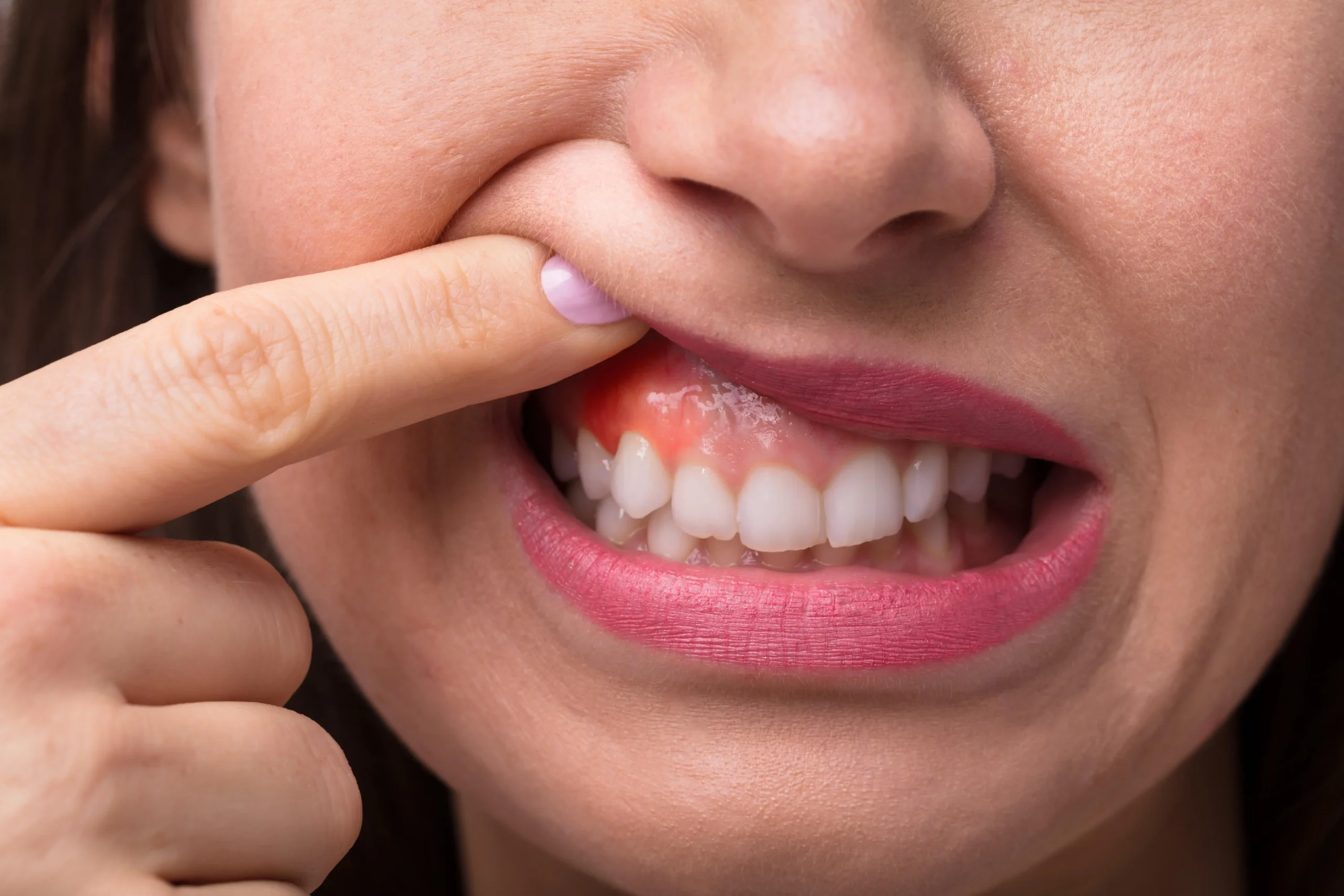
People with :
Swelling
Bleeding gums
Deep pockets
Tooth sensitivity
Smoking habits
Diabetes or low immunity

Treats mild to severe gum infection.

Reduces bleeding, swelling, and discomfort quickly.

Local anesthesia ensures a gentle experience.

Prevents further bone loss and gum recession.

Laser and deep-cleaning techniques avoid cuts and reduce recovery time.

Periodontists ensure safe and predictable treatment outcomes.
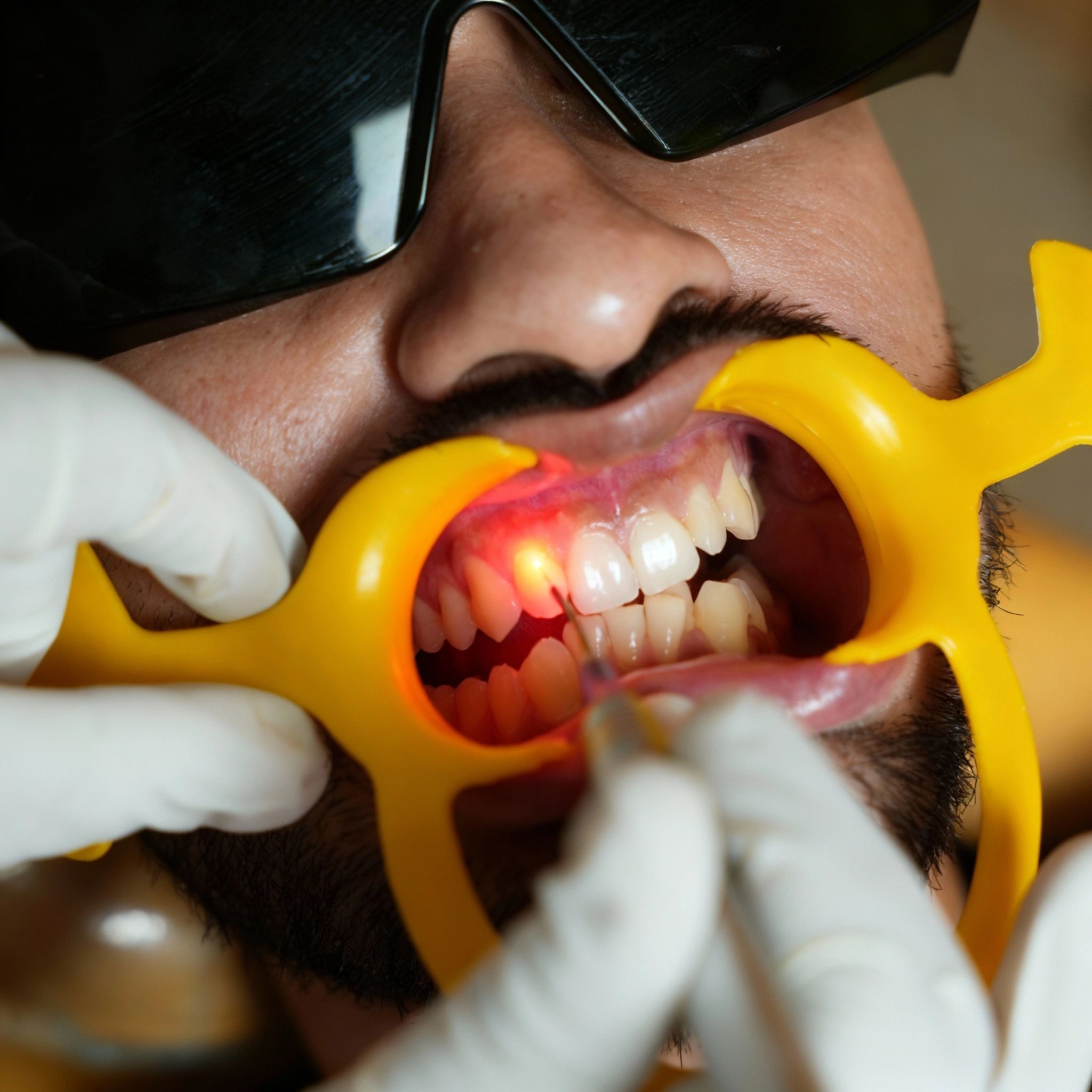
Get a specialist assessment and a personalised plan for healthy gums & teeth. With 650+ clinics and rapid appointments expert care is always within reach.

100% Privacy
Your information is secure.

Expert Care
Certified periodontists and trained dentists.

Safe & Sterile
Sealed, tracked instruments for every patient.

Happy Patients
30 lakh+ smiles protected across India.
Clinical examination and digital X-rays to determine infection depth, pockets, and bone loss.
Deep cleaning to remove plaque and tartar deposits above and below the gumline.
Antibiotics, mouth rinses, and local antimicrobials to reduce active infection.
Recommended for deep pockets, bone defects, or advanced tissue damage.
Periodic cleanings and monitoring to prevent recurrence and maintain stability.
| Normal Gums | Early Warning Signs | Needs Immediate Care |
|---|---|---|
| Light pink & firm | Redness or puffiness | Swollen, painful, or infected gums |
| No bleeding | Occasional bleeding while brushing | Bleeding every day or spontaneously |
| Fresh breath | Mild bad breath | Persistent bad breath / foul taste |
| No deposits | Plaque buildup | Hard tartar deposits near or under gums |
| No sensitivity | Mild gum sensitivity | Sharp pain, tenderness, or throbbing |
| Stable teeth | Mild gum recession | Loose, shifting, or separating teeth |
| Healthy gumline | Early pocket formation | Deep pockets / visible gum detachment |
Our periodontists evaluate your gum condition and recommend the right therapy based on infection depth, pocket size, bone loss, and comfort needs.
At Clove, gum disease care includes both non-surgical and surgical options for predictable long-term results.
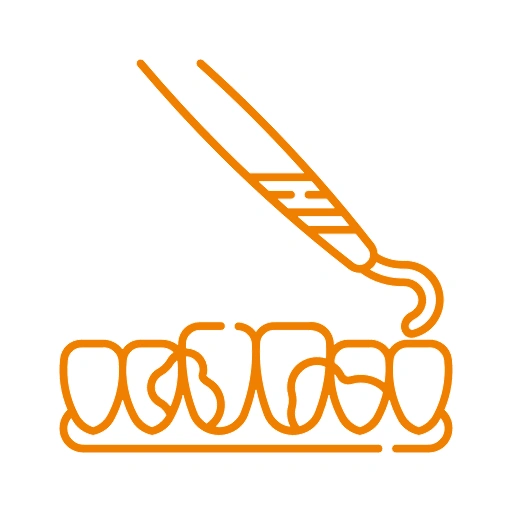
Removes plaque and tartar from above and below the gums to stop infection and reduce pocket depth.
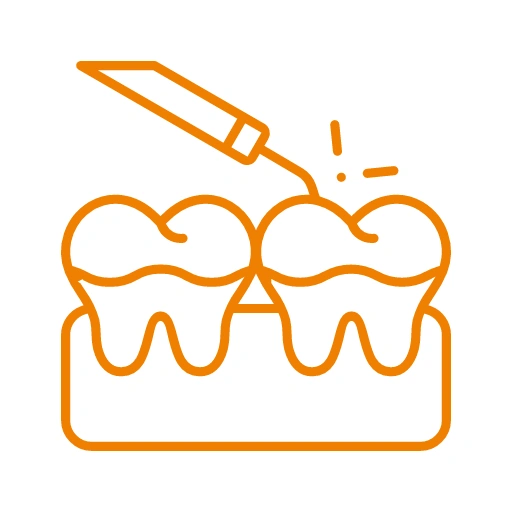
Minimally invasive laser therapy that disinfects deep pockets, reduces swelling, and promotes faster healing with minimal discomfort.

Targeted antimicrobial medication placed inside gum pockets to control bacterial infection.

Gums are gently lifted to clean deep infection and tartar that cannot be reached with routine cleaning.

Rebuilds bone lost due to gum disease, helping stabilize loose teeth.

Restores receding gumlines and covers exposed roots to reduce sensitivity.
Clove Dental offers expert gum care and modern technology at transparent prices, ensuring high-quality treatment that fits your budget.
| Gum Treatment | Starting Price |
|---|---|
| Laser Gum Treatment | ₹ 1,950 |
| Scaling & Root Planing | ₹ 1,430 |
We follow strict sterilization and infection-control systems using sealed and tracked instruments to ensure a completely safe and hygienic gum treatment experience.
Our specialist periodontists manage complex gum disease cases, ensuring accurate diagnosis, deeper infection control, and predictable healing.
Digital X-rays, ultrasonic scalers, and periodontal probes help identify hidden pockets, bone loss, and infection for precise, outcome-driven treatment.
Minimally invasive dental lasers remove infection, reduce bleeding, and promote faster healing ideal for moderate to advanced gum disease.
With 650+ clinics in 26+ cities, access care anywhere your records stay digital, clinics are open on weekends, with late appointments available.

Get a specialist assessment and a personalised plan for healthy gums & teeth. With 650+ clinics and rapid appointments expert care is always within reach.

100% Privacy
Your information is secure.

Expert Care
Certified periodontists and trained dentists.

Safe & Sterile
Sealed, tracked instruments for every patient.

Happy Patients
30 lakh+ smiles protected across India.
Common questions about Gum Diseases Treatment
It’s true that you should floss. Floss can get in where your toothbrush cannot. It’s almost like brushing the hard-to-reach areas of your mouth that your brush ignores.
Yes, Mouthwashes do aid in keeping gum healthy. Although it is useful in eliminating certain bacteria, it is to be used alongwith brushing and flossing.
Yes, gum disease are very well treatable. The course of treatment to be undertaken and its duration depends upon the disease stage.
Recovery time depends on the disease stage. Stage one typically requires 10-14 days.
No, gum disease do not get better on their own. Professional dental cleaning and a good oral care routine are necessary.
Early gum disease (gingivitis) is reversible; advanced cases can be managed long-term with care, but lost bone may not return.
Real smiles, real stories. Here's what our patients love about their CLOVE Dental experience!
Healthy gums need consistent care. With simple daily habits, you can maintain strong, disease-free gums.

Brush twice daily, floss regularly, and use dentist-recommended mouthwash.

Scheduled reviews help track healing and prevent future problems.

Quit smoking and avoid substances that slow gum healing.

Eat nutrient-rich foods that support gum health and avoid sugary or acidic snacks to reduce inflammation.
Clove Dental has clinics in 27 cities in India. Find the nearest one for expert Dental Implant care at a reasonable cost.

Clove Dental clinics are Available in 27 Indian Cities. Book an appointment at Clove Dental Clinics for the best dental treatments by expert dentists/orthodontists for Clear Aligners / Invisible Braces at a reasonable cost. Select your city below to find the best option: